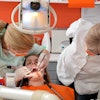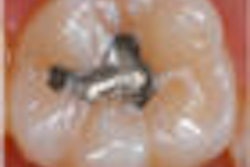Dentists vary widely in their use of amalgam from place to place and among types of practice, according to a new survey.
The study, published in the April 2010 Journal of the American Dental Association (Vol. 141:4, pp. 441-448), drew from members of the Dental Practice-Based Research Network; dentists from the U.S. states of Alabama, Mississippi, Florida, Georgia, Minnesota, and Oregon; and dentists from the countries of Denmark, Norway, and Sweden.
The study does not purport to be representative of any country or state as a whole, and in some of the states a disproportionate number of the practitioners were associated with one organization. For example, the Oregon dentists were all affiliated with the Kaiser Permanente Center for Health Research in Portland, OR.
Dentists participating in the survey recorded the type of restoration they placed for a consecutive set of 50 patients each.
Overall, the dentists in the survey used amalgam for 38% of the fillings they placed. They used composite resins for 56%. No other material accounted for more than 1% except glass ionomer (including resin-modified glass ionomer), which made up 3%. The material ranged by the type of restoration, with 56.5% of class II restorations using amalgam, compared to only 2% of class IVs.
The use of amalgam varied a lot within the network. For example, the Scandinavian dentists used this material only 5.9% of the time, while the Oregon dentists used it 63.2% of the time.
The Minnesota dentists, many of them employed by HealthPartners in Bloomington, MN, used amalgam 56.3% of the time, the Alabama and Mississippi dentists 28.3%, the Florida and Georgia dentists 21.8% of the time.
What accounts for the differences?
"Decision-making in general dental practice tends to be based on tradition rather than on evidence-based knowledge," the authors wrote.
"It is possible that information gathered from evidence-based research is shared and discussed more frequently among dentists in large group practices than it is among those in more isolated solo practices," they added.
Copyright © 2010 DrBicuspid.com



















